When your participants take a Wellsource health risk assessment, they answer questions about their food choices, exercise habits, and health history. Our comprehensive HRAs also ask questions about mental and social factors to find out how happy people feel.
In the PWP Advantage questionnaire, within Part 7: Mental and Social Factors, the following question addresses happiness:
All in all, how happy are you?
- Unhappy
- Pretty happy
- Very happy
Wouldn't it be great if 100 percent of your program participants responded "very happy" to this question? It's possible, but you're bound to have some less than happy participants. If you could help those who said they were "unhappy" make changes to feel "pretty happy," how would that impact your organization?
If the HRA results about happiness in your organization aren't ideal, you're not alone. According to findings of a 2013 Harris Poll survey, only a third of Americans (33 percent) are very happy. That's right…only one-third of Americans reported being very happy. Fortunately, your role as a wellness professional can help shift the trend.
It starts by understanding what happiness means. According to the Merriam-Webster dictionary, happiness is:
- The state of being happy
- Pleasure, contentment, joy
The science of happiness has been studied extensively by Dr. Martin Seligman. He's the pioneer in the field of positive psychology who developed the PERMA model. The PERMA model encompasses the five elements essential for well-being:
P = Positive emotion
E = Engagement
R = Relationships
M = Meaning
A = Achievements/Accomplishments
Together, these elements form the foundation on which you can help participants build a happy life. Let's take a look at each of these elements and their application, specifically in the workplace.
Positive Emotion…
How can we promote happiness in the workplace? Provide opportunities for your employees to use their talents and strengths at work. Encourage employees to find ways to bring positive emotions and enjoyment into their daily routine.
Engagement…
How can we help employees be more engaged at work? Help employees minimize distractions and improve concentration to increase engagement and productivity. Provide opportunities for projects that will challenge their skills.
Relationships…
Do your participants have positive relationships with colleagues in the workplace? Because employees spend many of their waking hours at work, it's important for them to build good work relationships. Foster these positive relationships by providing opportunities for employees to interact with each personally as well as professionally.
Meaning…
Do employees feel that their work is meaningful? Most employees want to believe that they are working for a greater purpose. If they believe their work is worthwhile, they will feel a sense of well-being and confidence that they are using their time and talents for the better. Help employees recognize meaning in their work.
Achievements/Accomplishments…
What do employees want to accomplish or achieve? Work with your employees to set goals and provide them with opportunities to achieve them. This will help build self-esteem and self-belief.
PERMA goes beyond the workplace. The elements of Dr. Seligman's model can be applied in every aspect of an employee's life, whether it's with their significant other, children, family, friends, or neighbors.
As a wellness professional, foster these elements and see what happens. Take a closer look at the responses to the happiness question. If "pretty happy" and "very happy" aren't the most common responses, implement these strategies to change that. Then periodically evaluate the responses to the happiness question within the Advantage assessment to see if responses improve.






